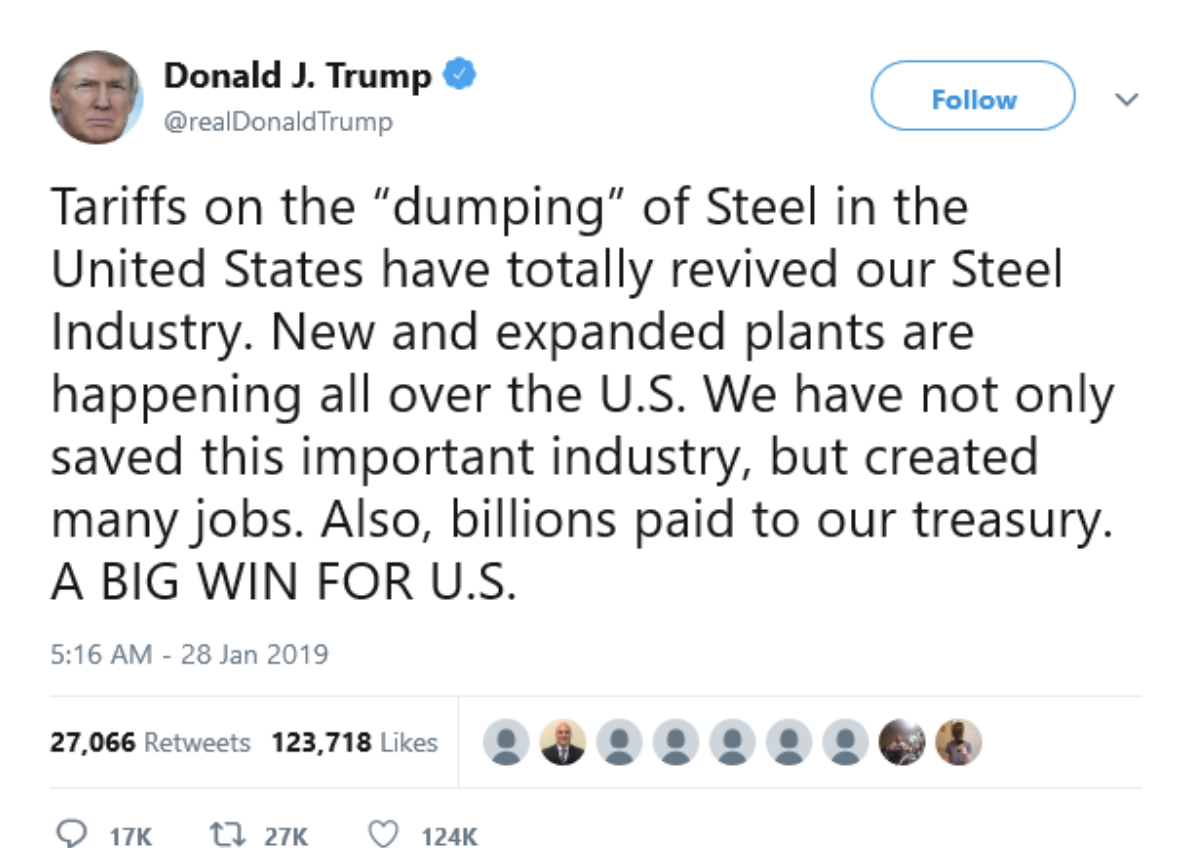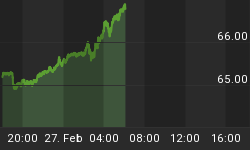After months of games of high-stakes brinkmanship, Trump has ended tariffs on steel and aluminum imports from Canada and Mexico, marking the first time the iconoclastic president has actually backed down on protection once it has been imposed. Trump’s administration imposed a 25 percent levy on imported steel and 10 percent on aluminum last March arguing cheap imports were a national security threat and were decimating whole communities.
Canada and Mexico are expected to reciprocate by lifting retaliatory tariffs imposed on American products.
The president is usually not this charitable, with a reworked trade deal with South Korea last year resulting in tariffs being replaced with quotas which were just as punitive. Washington was actually pushing for a similar quotas-for-tariffs swap with the two nations but they stood their ground.
The administration has also announced it will postpone the decision on whether to impose tariffs on car and automobile part imports for six months.
Why has Trump backed off?

(Click to enlarge)
The cop-out has taken many by surprise given how vocal the no-holds-barred president has been about making sure America gets back its pound of flesh from predatory trade partners. There are several possible reasons for his sudden change in tact.
First off, it’s likely that the president has decided he has enough on his plate already. The U.S. is embroiled in a big trade war with China, and escalating it by taking on its North American neighbors as well as the EU at the same time while hoping to come out unscathed might be a tad naïve.
Related: Rise Of EVs Signals Peak Gasoline
Second, Trump might have finally come to the realization that those types of trade barriers rarely work as intended. The president has in the past called the tariffs a big win for the country, saying they had helped revive U.S. steel and aluminum industries and created thousands of new jobs. Yet, evidence for the same is tenuous or mixed at best.
American steel manufacturers did receive an initial boost with the New York Times reporting that dozens of steel companies had re-opened or made new investments courtesy of the tariffs. The bounty though was only short-lived with steel prices rapidly falling back to pre-tariff levels. Shares of steel companies have been beaten up pretty badly over the past few years and Trump’s tariffs have done little to change the situation.
The one thing the tariffs undoubtedly achieved was a deterioration in relations between America and its closest neighbors. Lifting the tariffs will help repair frayed ties with two of its top allies especially since the three countries have agreed to drop their World Trade Organization trade disputes.
Yet, Trump’s sudden magnanimity might actually prove self-serving.
U.S. lawmakers from both parties have severally warned that the tariffs would hinder attempts to ratify a new trade deal between the three neighbors on Capitol Hill. Ending the tariffs clears a major hurdle to the ratification of the NAFTA replacement, USMCA (U.S.-Mexico-Canada Agreement), in all three countries. Granted, removal of the metal tariffs is just one of several pre-conditions for USMCA to finally see the light of day. Nevertheless, the president has just improved the odds of overseeing a signature trade deal he will no doubt love to tout during his 2020 reelection campaign.
Costly experiment
Ultimately, the steel and aluminum tariffs have proven a futile and costly experiment in protectionism. Trump’s administration has not fully given up on protecting its metals industry altogether and can still re-apply them if deemed necessary. Nevertheless, the boilerplate safeguard language in the agreement simply is a well-established provision found in most trade agreements that allows a country to temporarily reimpose protection whenever a surge in imports threatens to injure domestic industries. Moreover, it limits retaliation to only the affected sectors.
Definitely looks like a step in the right direction.
By Alex Kimani for SafeHaven.com
More Top Reads From Safehaven.com
















